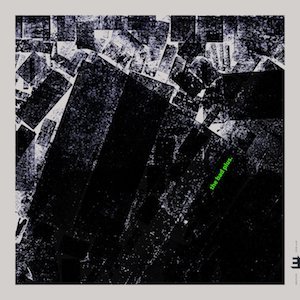Label: Mack Avenue Records, 2024
Personnel - Chris Speed: tenor saxophone; Ben Monder: guitar; Reid Anderson: bass, synth; Dave King: drums, synth.
The Bad Plus, a quartet of first-rate musicians renowned for their genre-blurring compositions, returns with their latest album, Complex Emotions. Saxophonist Chris Speed and guitarist Ben Monder, who joined founding members bassist Reid Anderson and drummer Dave King in 2021, have become integral to the ensemble. Their second album as a quartet features eight original compositions—four by Anderson, two by King, and one each by Speed and Monder. Together, these pieces explore the individual compositional voices of the band members who rove beyond the confines of stereotyped jazz and rock to create something wholly distinctive.
The album opens with two Anderson-penned tracks. “Grid/Ocean” is smoothly laid down with a blend of wet and dry percussion timbres, a soulful melody that puts light in the horizon, and a circular pop/rock harmony. Monder’s guitar work dazzles, glowing with intensity as King’s cymbal flourishes build to an exhilarating climax. The next track, “French Horns”, is marked by an invigorating rhythm, drawing freely from alternative rock and featuring synchronized guitar-sax melodies, anthemic chordal patterns supporting Speed’s nimble improvisation, and a scorching, metal-inspired guitar solo by Monder.
King’s flair for rhythmic complexity and tricky meters shines on “Casa Ben”, which, delivered with a progressive rock posture, showcases a killer theme centered on a dazzling descendant phrase, and variations of 10 and 12 beat-cycle passages. Speed’s “Cupcakes One” channels a punk rock vibe and a pop melody, elevated by Monder’s inventive solo. The track’s infectious rhythm invites listeners to move, much like Anderson’s expansive “Carrier”, a groove-laden piece driven by an off-kilter beat shuffle. Nonetheless, Monder and Speed provide a contrasting dreamy feel, creating a Mazzy Star-kind of melancholy, while Anderson’s bass shifts seamlessly from understated to commanding.
The adventurous “Deep Water Sharks”, another Anderson composition, offers a vibrant krautrock-inspired groove filled with rapid ideas, guitar noise and scattered harmonics, as well as melodic fluidity. Speed’s improvisation injects further vitality into the track. The album concludes with Monder’s “Li Po”, an eery, atmospheric number filled with dark suspensions and continuous tension. Previously featured on Monder’s triple album Planetarium, this haunting piece feels tailor-made for a mystery or horror film soundtrack.
Complex Emotions solidifies The Bad Plus as a sensational post-modern jazz act. By forging fresh paths and emphasizing the distinct musical identities of its members, the album offers a compelling and multifaceted listening experience, confirming the quartet’s creative vitality.
Favorite Tracks:
01 - Grid/Ocean ► 02 - French Horns ► 05 - Cupcakes One ► 06 - Carrier






